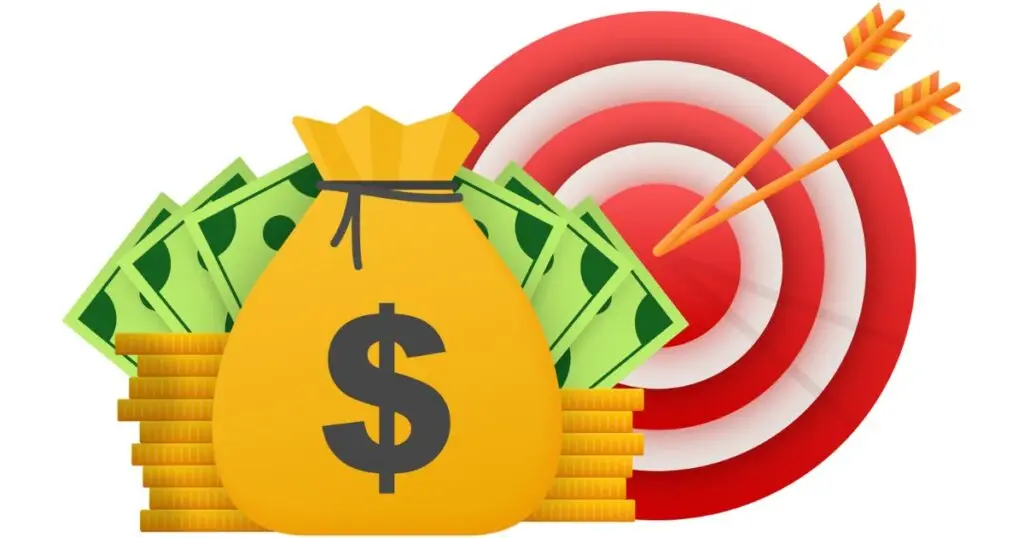
In today’s fast-paced world, saving money can seem like an uphill battle. However, with the right strategies and mindset, it’s possible to achieve your financial goals faster than you might think. This comprehensive guide will equip you with practical tips and tricks on how to save money fast, empowering you to take control of your finances and build a brighter future.
How to Save Money Fast: 10 Best Tips
1. Assess Your Current Financial Situation
The first step towards effective saving is gaining a clear understanding of your spending patterns. To achieve this, it’s essential to meticulously track your income and expenses over a month. This will help you pinpoint areas where you might be overspending and identify opportunities to cut back. Utilize budgeting apps like Mint or YNAB, or even simple spreadsheets, to categorize your expenses (e.g., groceries, dining out, entertainment, transportation). This visual representation of your spending habits can reveal eye-opening insights and empower you to make informed decisions about where to reduce expenditures.
2. Set SMART Financial Goals
SMART is an acronym that outlines the essential criteria for effective goal-setting:
Time-Bound: Set a deadline for achieving your goal. This creates a sense of urgency and helps you stay on track. Instead of an open-ended goal, specify a timeframe like, “I will save $5,000 within the next 18 months.”
Specific: Your goal should be clear and well-defined. Avoid vague statements like “I want to save money.” Instead, pinpoint exactly what you want to achieve, such as “I want to save $5,000.”
Measurable: Make your goal quantifiable so you can track your progress. Instead of just aiming to save, specify how much you’ll save each month or week. For example, “I will save $275 per month.”
Achievable: While it’s great to dream big, ensure your goal is realistic and attainable based on your income and expenses. Setting an overly ambitious goal can lead to discouragement if it feels out of reach.
Relevant: Your goal should be meaningful and align with your broader financial objectives. Ask yourself why you want to save this money. Is it for a down payment, an emergency fund, or a dream vacation? Connecting your goal to a larger purpose will fuel your motivation.
3. Create a Realistic Budget
A budget acts as your financial compass, guiding you towards your desired destination of financial success. It involves meticulously allocating your income to cover essential expenses, such as housing, groceries, utilities, and transportation. Simultaneously, it’s crucial to earmark a portion of your income for savings and discretionary spending, ensuring you’re prepared for the future and can still enjoy life’s pleasures.
For instance, if you earn $2,000 per month, you might allocate $800 for rent, $300 for groceries, $200 for transportation, $200 for savings, and $500 for discretionary expenses like dining out or entertainment. Be honest with yourself about your spending habits and adjust your budget as needed to ensure it remains a practical and effective tool for managing your money.
4. Cut Unnecessary Expenses
Take a close look at your budget and pinpoint areas where you might be spending more than necessary. Consider canceling subscriptions to streaming services, magazines, or gym memberships that you don’t utilize regularly. Opt for home-cooked meals instead of dining out frequently, as this can lead to substantial savings over time. Explore free or low-cost entertainment options, such as visiting parks, hiking trails, or enjoying community events, instead of relying on expensive outings. Embrace a mindset of frugality and actively seek out more affordable alternatives for your leisure activities. Remember, even seemingly insignificant changes in your spending habits can accumulate into substantial savings over the long run.
5. Automate Your Savings
Set up automatic transfers from your checking account to your savings account each month. This ensures that you consistently save money without having to think about it. Treat your savings like any other essential expense.
Embrace the Power of Automation
One of the most effective ways to save money fast is to automate your savings. Set up a recurring automatic transfer from your checking account to your savings account each month, preferably on the day you receive your paycheck. This “pay yourself first” approach ensures that you consistently contribute to your savings without having to rely on willpower or remember to do it manually. By automating the process, you remove the temptation to spend that money on other things and make saving a seamless part of your financial routine.
Treat Savings as a Non-Negotiable Expense
Just as you prioritize paying your rent, utilities, and other essential bills, consider your savings contribution equally important. Incorporate it into your budget as a fixed expense, ensuring it’s allocated and deducted automatically each month. This mindset shift helps you prioritize your financial future and avoid dipping into your savings for non-essential purchases.
The Benefits of Automating Your Savings:
- Consistency: Automatic transfers guarantee that you save money every month, regardless of how busy or forgetful you might be.
- Discipline: It removes the temptation to spend money that’s earmarked for savings, helping you build discipline and avoid impulse purchases.
- Growth: By consistently saving, you’ll witness your savings grow steadily over time, thanks to the power of compound interest.
Example:
Let’s say you want to save $500 per month. Set up an automatic transfer of $500 from your checking account to your savings account on the day you receive your paycheck. This way, you’ll consistently save without having to think about it, and your savings will grow steadily month after month.
Remember, automating your savings is a simple yet powerful tool that can significantly accelerate your progress towards your financial goals.
6. Increase Your Income
Don’t limit yourself to just cutting expenses; explore opportunities to increase your income as well. Consider taking on a part-time job, such as working weekends at a retail store or evenings as a delivery driver. If you have specific skills or talents, explore freelance opportunities in areas like writing, graphic design, or web development. You can also declutter your home and sell unused items online or at a garage sale. The extra money you earn can be channeled directly into your savings, providing a significant boost to your financial goals and helping you reach them faster.
7. Negotiate Your Bills
Don’t hesitate to negotiate your bills! Many service providers, especially those offering internet, cable, or phone services, are open to negotiation. Take the initiative to contact your providers and inquire about potential discounts, promotions, or loyalty programs that could lead to savings. You might be pleasantly surprised to discover how much you can save simply by asking. Remember, these companies value your business and may be willing to offer better rates to retain you as a customer. It’s a simple step that could result in significant savings over time.
8. Shop Smart
Before committing to any purchase, make it a habit to compare prices across different stores or online platforms. This simple act can often unveil significant price differences for the same product. Actively seek out sales, discounts, and special offers, taking advantage of seasonal promotions or clearance events.
Furthermore, consider opting for generic brands instead of well-known name brands. In many cases, generic products offer comparable quality at a fraction of the cost. Utilize coupons, promo codes, and cashback apps to further enhance your savings. By adopting a savvy shopping approach, you can significantly reduce your expenses and accelerate your savings goals.
9. Cook at Home
Dining out, while enjoyable, can quickly become a significant burden on your finances. By preparing meals at home, you not only save a substantial amount of money but also gain greater control over the ingredients and nutritional value of your food, leading to improved health and well-being.
Embracing meal planning and prepping can further amplify your savings and ensure you stay on track. Dedicate some time each week to plan your meals, create a grocery list, and prepare ingredients in advance. This approach minimizes the temptation to order takeout or dine out on a whim, empowering you to make healthier and more budget-friendly choices.
10. Avoid Impulse Purchases
Before making a purchase, ask yourself if you really need it. Wait 24 hours before buying non-essential items to avoid impulse buys. This will help you make more mindful spending decisions.
Pause and Reflect Before You Buy
Before reaching for your wallet or clicking that “buy now” button, take a moment to pause and reflect on whether you genuinely need the item in question. Ask yourself:
- Do I truly need this, or do I just want it?
- Will this purchase add value to my life or simply clutter my space?
- Can I afford this without compromising my financial goals?
If you’re unsure about a purchase, especially for non-essential items, implement a 24-hour waiting period. This allows you to step back, assess your needs, and avoid making impulsive decisions driven by fleeting desires or marketing tactics.
The Power of Mindful Spending
By adopting this practice, you’ll cultivate a more mindful approach to spending, leading to:
- Reduced Impulse Buys: The waiting period allows you to break free from the grip of instant gratification and make more intentional choices.
- Increased Savings: By avoiding unnecessary purchases, you’ll free up more money to allocate towards your savings goals or other financial priorities.
- Less Buyer’s Remorse: Mindful spending helps you avoid the regret that often accompanies impulse purchases, ensuring that your money is spent on things that truly matter to you.
Remember, the key to financial success lies in making conscious and deliberate spending decisions. By taking a moment to pause and reflect before each purchase, you’ll empower yourself to achieve your financial goals and build a more secure future.
Conclusion
Saving money fast requires discipline, commitment, and a willingness to make changes to your lifestyle. By following the tips outlined in this guide, you can take control of your finances, achieve your savings goals, and build a more secure financial future. Remember, every little bit counts, and even small changes can lead to significant savings over time.
Frequently Asked Questions
1. How much money should I save each month?
A common recommendation is to save at least 20% of your income each month. However, the ideal amount will vary depending on your individual circumstances and financial goals. Start with a smaller percentage if necessary and gradually increase it as you can.
2. What’s the best way to track my expenses?
There are several ways to track your expenses, including using budgeting apps, spreadsheets, or even pen and paper. Choose a method that works for you and stick to it consistently.
3. How can I resist impulse purchases?
Before making a purchase, ask yourself if you really need it and if it aligns with your financial goals. Wait 24 hours before buying non-essential items to avoid impulse buys. You can also unsubscribe from marketing emails and avoid browsing online stores when you’re feeling tempted to spend.
4. What should I do if I have unexpected expenses?
It’s important to have an emergency fund to cover unexpected expenses, such as car repairs or medical bills. Aim to save three to six months’ worth of living expenses in a readily accessible account.
5. How can I stay motivated to save money?
Set clear and achievable financial goals and track your progress regularly. Celebrate your milestones and reward yourself for reaching your goals. Surround yourself with positive influences and seek support from friends and family who share your financial aspirations.
Thank you for reading! We hope this guide has provided you with valuable insights on how to save money fast. If you’re eager to continue your journey toward financial well-being, we invite you to explore our other informative articles on personal finance and budgeting.


